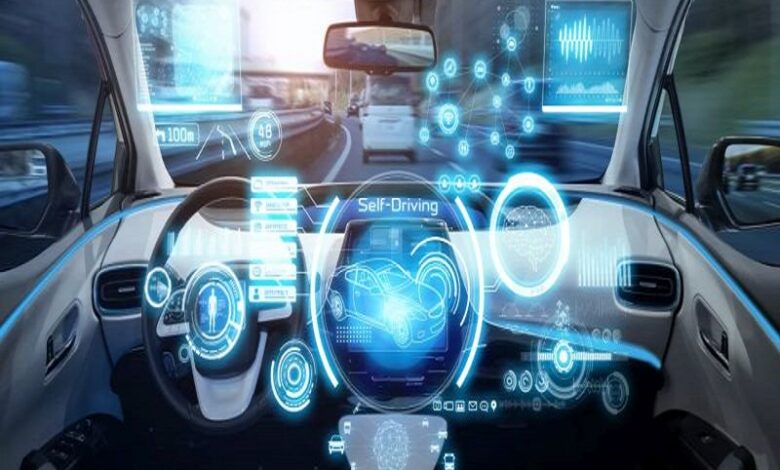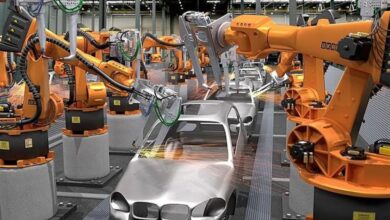Self-Driving Cars and AI Ethics

By Peter Singer and Tse Yip Fai
Special to The Times Kuwait
Last month, California regulators allowed two companies that operate self-driving cars to accept paying customers in San Francisco. The first week did not go well. One car drove itself onto freshly poured concrete in a road construction zone with traffic cones and workers with flags. The car got stuck in the wet concrete, and the company will be paying to repave the road.
In a more serious incident, a passenger in a driverless car was injured in a collision with a fire truck. As a result, the operator agreed to halve the number of driverless vehicles it operated in San Francisco.
The decision to permit self-driving cars may usher in a new era of transportation, or it may prove to be a false dawn. Either way, the issues surrounding self-driving cars illustrate many of the ethical questions raised by the impact of artificial intelligence on everyday life.
A world in which most vehicles were fully autonomous would have many advantages. Most private cars spend a great deal of time idle. If everyone could call up an autonomous vehicle whenever required, there would be no need to own one’s own car, thus saving resources. Moreover, by keeping traffic flowing more smoothly, the widespread use of driverless cars may also save fuel and time.
But the most important reason for eliminating human drivers is that it could also eliminate the human errors that cause so many traffic accidents, injuries, and deaths. (The US National Highway Traffic Safety Administration puts the death toll on US roads last year at 42,795.)
Elon Musk has said that developing fully autonomous vehicles is a moral obligation because it can bring about a “virtually accident-free future.” But that future is still some distance away: to date, the Teslas that Musk’s company makes have been involved in more than 700 crashes, with 17 fatalities, when operating on Autopilot, their driver assistance mode.
Both companies operating driverless cars in San Francisco claim that their cars are involved in fewer collisions, and especially fewer collisions involving injuries, than human drivers in a comparable driving environment. But the validity of such claims is contested, owing to doubts about the driving environments being compared.
Still, even if the latest generation of driverless vehicles is less safe than the average human driver, it could be argued that putting them onto city streets now is justified because doing so will save so many more lives in the long run. Once autonomous vehicles are perfected, we may even restrict human drivers to lower speeds, or prohibit them altogether, because the risk that they pose to other road users, relative to the safer option provided by driverless cars, becomes unacceptable.
Not surprisingly, opposition to ‘robo-taxis’ has come from taxi drivers — a response familiar from other areas where AI threatens to put people out of work. By enhancing productivity, advocates say, AI will allow us to achieve a better work/life balance. But ‘us’ will not include anyone who loses their job to AI, unless they are retrained for other work, and unless companies are required to pay their employees a living wage for a shorter work week. Will there be the political will to do that?
Looking further into the future, what if AI becomes so successful that few humans have jobs at all? Will we be able to develop new purposes that will replace the role of work in giving our lives meaning and fulfillment?
AI programming is likely to be another area for regulation. To return to the example of driverless vehicles, consumers in an unregulated market will seek cars that minimize the risk to themselves or their passengers, even if that significantly increases the risk to pedestrians. Yet if all cars were programmed this way, the number of people killed or injured by cars would be higher than if cars were programmed to follow risk-minimization strategies that are impartial between those inside the car and those outside it. Only regulation that requires such impartiality can prevent an outcome resembling the well-known ‘tragedy of the commons’.
A more surprising issue raised by driverless cars is that they appear to be less reliable in detecting pedestrians with darker skin than those with lighter skin, and thus may hit disproportionately more dark-skinned pedestrians. One study (published in 2019 and using technology that was state-of-the-art in 2018) suggests that this was because the software was developed and trained in regions with more light-skinned pedestrians than dark-skinned ones. If that is the case, then once we are aware of such problems, they can and should be fixed.
One important but often overlooked ethical issue raised by autonomous vehicles is whether they should be programmed to avoid hitting animals, and if so, which ones. All vertebrates, and some invertebrates, are sentient beings, liable to suffer if hit but not killed instantly. Moreover, in many species, the loss of a mate will cause distress, or may lead to dependent offspring starving to death. How we should value the lives and interests of all sentient beings is a question that AI ethics needs to address.
 Peter Singer
Peter Singer
Professor of Bioethics at Princeton University, is Founder of the charity The Life You Can Save and the author, most recently, of Animal Liberation Now

Tse Yip Fai
Tse Yip Fai is an AI researcher, currently contracted by the Princeton University Center for Human Values to assist Singer with his research in this area.
Copyright: Project Syndicate
www.project-syndicate.org













